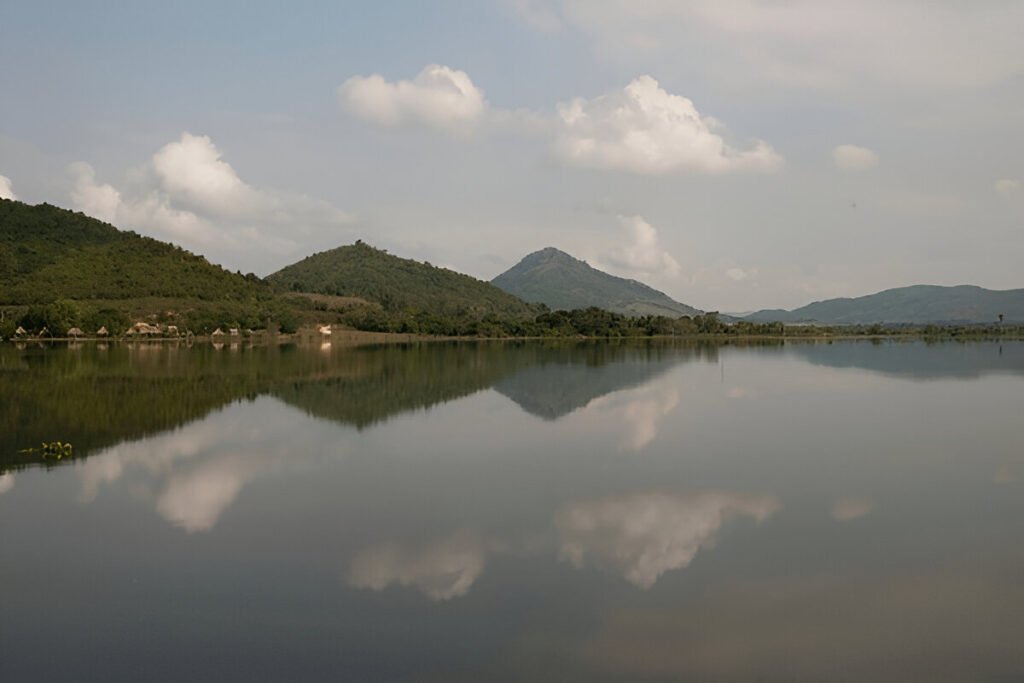Introduction:
In the heart of Seto Inland Sea, lies a lesser-known but breathtaking island of Japan, Teshima. Popular among art connoisseurs and nature lovers alike, this humble island brims with an enchanting blend of natural beauty and artistic allure. The crowning glory of Teshima is undeniably the Teshima Art Museum, a canvas where art and nature harmoniously coexist. This exceptional venue allows visitors to witness the unprecedented merging of manmade creativity and untamed wilderness.
Unveiling Teshima Art Museum: A Symphony of Art and Nature
The Teshima Art Museum, designed by the architect Ryue Nishizawa and artist Rei Naito, is the embodiment of minimalist elegance harmonizing with nature. It stands as an architectural marvel, curved and white, resembling a water droplet at the moment of landing. It’s not your conventional museum, with walls adorned by paintings or sculptures, but a single, large, open space. Its key feature is an art installation where water continuously seeps from the ground, creating a tranquil environment that mesmerizes every visitor.
The interior space of the museum, designed to resemble the inside of a drop of water, is devoid of pillars or walls. It is here where the enchanting dance of art and nature unfolds. The museum’s shell-like shape has two openings that allow the elements of nature, like wind, sound, and light, to flow in and out freely, creating an ever-changing display of natural artistry. These subtle, ephemeral elements of nature bring alive the space in a way that no man-made art can.
The Magic of Teshima: A Unique Harmony Between Creativity and Wilderness
Stepping into Teshima is like entering a portal leading to a realm where art and nature share an intimate bond. Apart from the Teshima Art Museum, the island is sprinkled with numerous other art installations and natural attractions that make this destination one-of-a-kind. The Teshima Yokoo House, another site to discover, offers a distinct blend of traditional Japanese architecture and contemporary art.
The island itself is a testament to the harmonious coexistence of creativity and wilderness. The natural topography of Teshima—its lush forests, rolling hills, and serene beaches—is intertwined with art in its most raw and evocative forms. The wilderness of Teshima serves as both the backdrop and the canvas for these artistic expressions. It’s a place where art is not just viewed but experienced in a profound, immersive way.
Local Tips:
The best time to visit Teshima is during the spring and autumn art festivals when the island is at its most vibrant. Casual, comfortable clothing is recommended due to the amount of walking involved. Don’t forget to bring a camera to capture the unique blend of art and nature.
How to Get There:
Teshima is accessible from major cities like Osaka and Tokyo via high-speed train to Okayama, followed by a local train to Uno and a ferry to Teshima. The journey, although long, offers scenic views and a taste of the tranquillity that Teshima embodies.
Nearby Attractions:
Nearby Inujima and Naoshima are also part of the Setouchi Triennale art festival. They are worth a visit for their unique art installations and natural beauty. A bike ride around the islands is a delightful way to explore these hidden gems.
Conclusion:
The visit to Teshima Art Museum and the island at large is more than just a sightseeing excursion—it’s an opportunity to experience a unique harmony between creativity and wilderness. It is a celebration of the profound connection that art and nature share, making it a must-visit destination for those who seek beauty beyond the conventional. The enchanting blend of art and nature at Teshima is not just to be seen, but to be felt, understood, and cherished.






